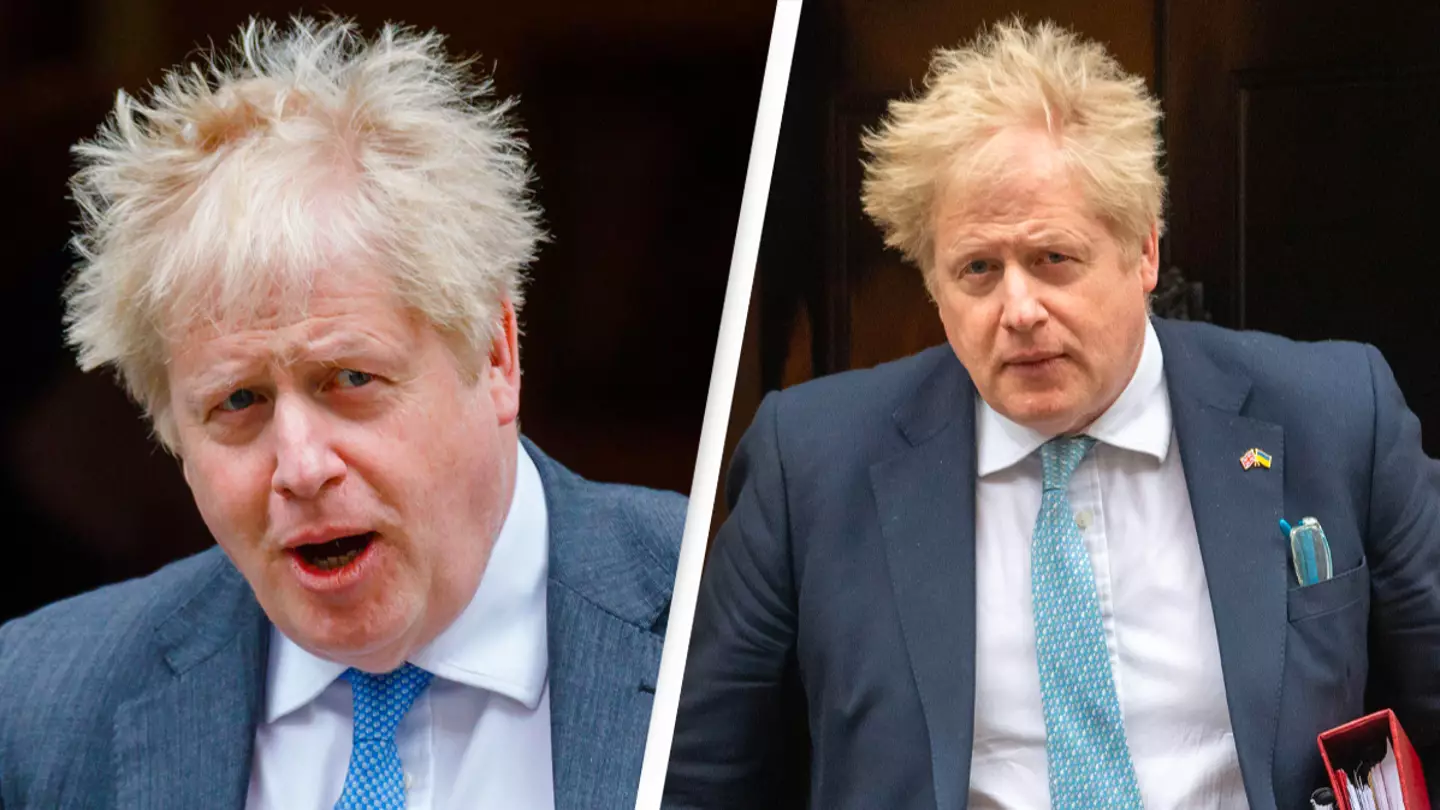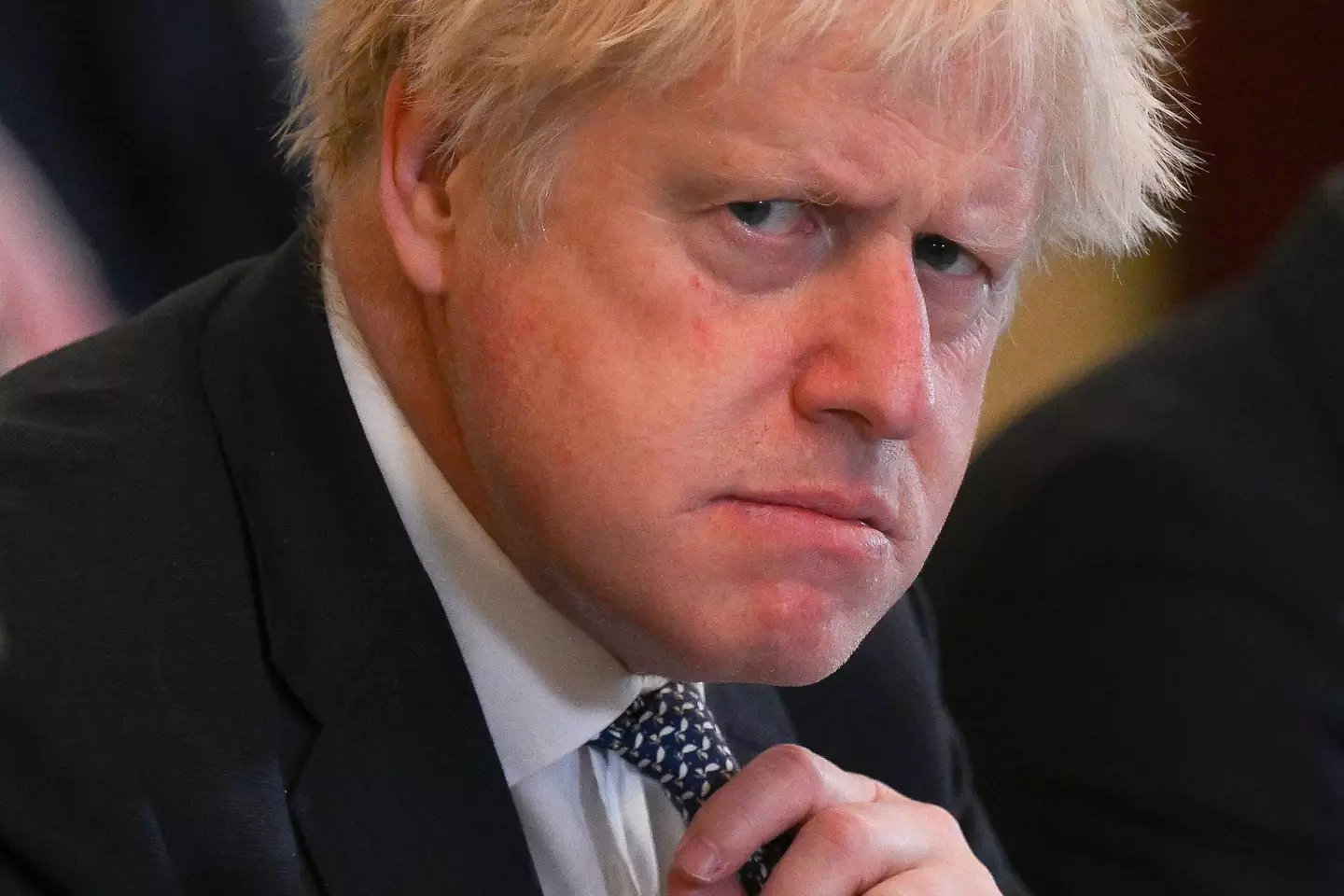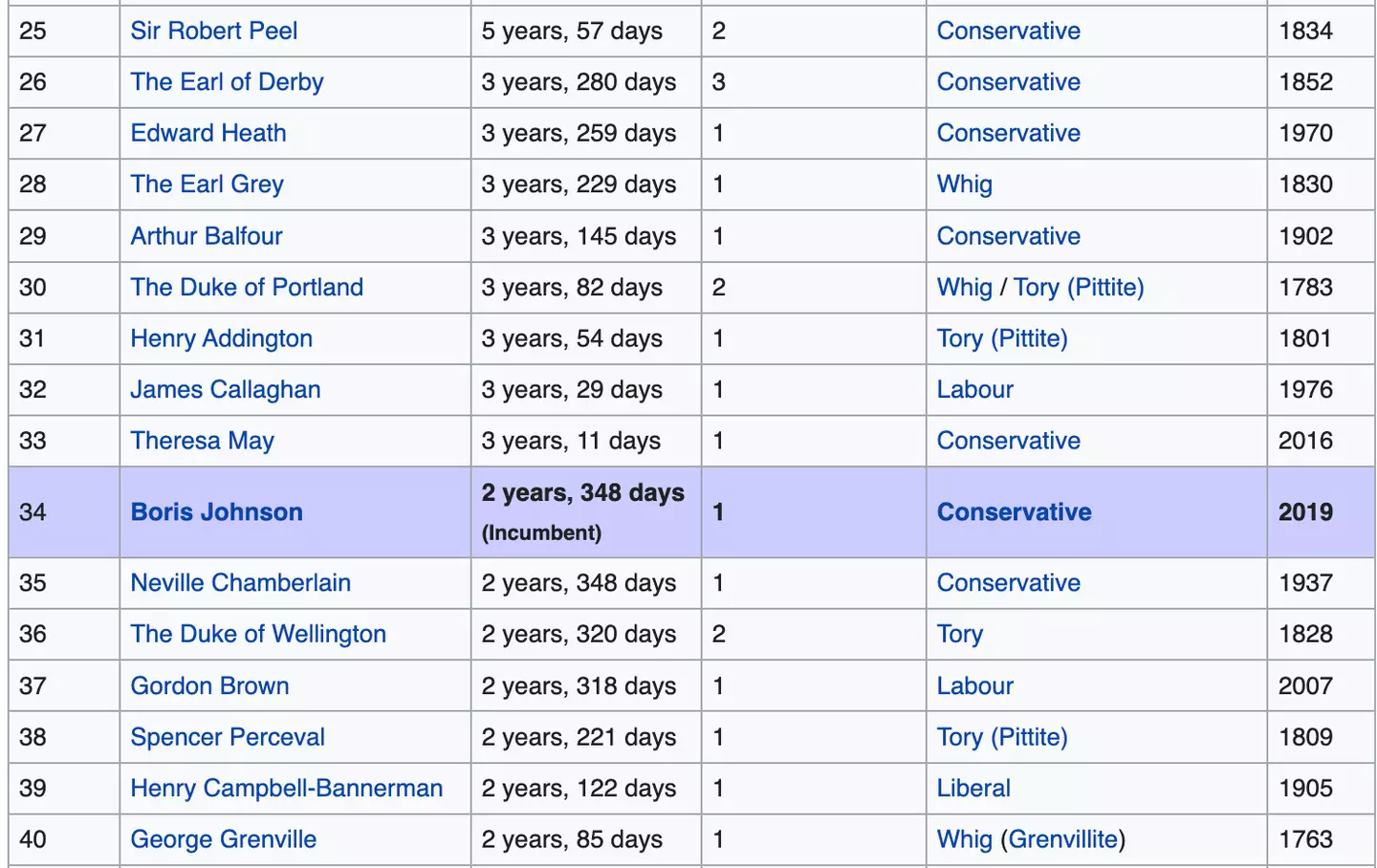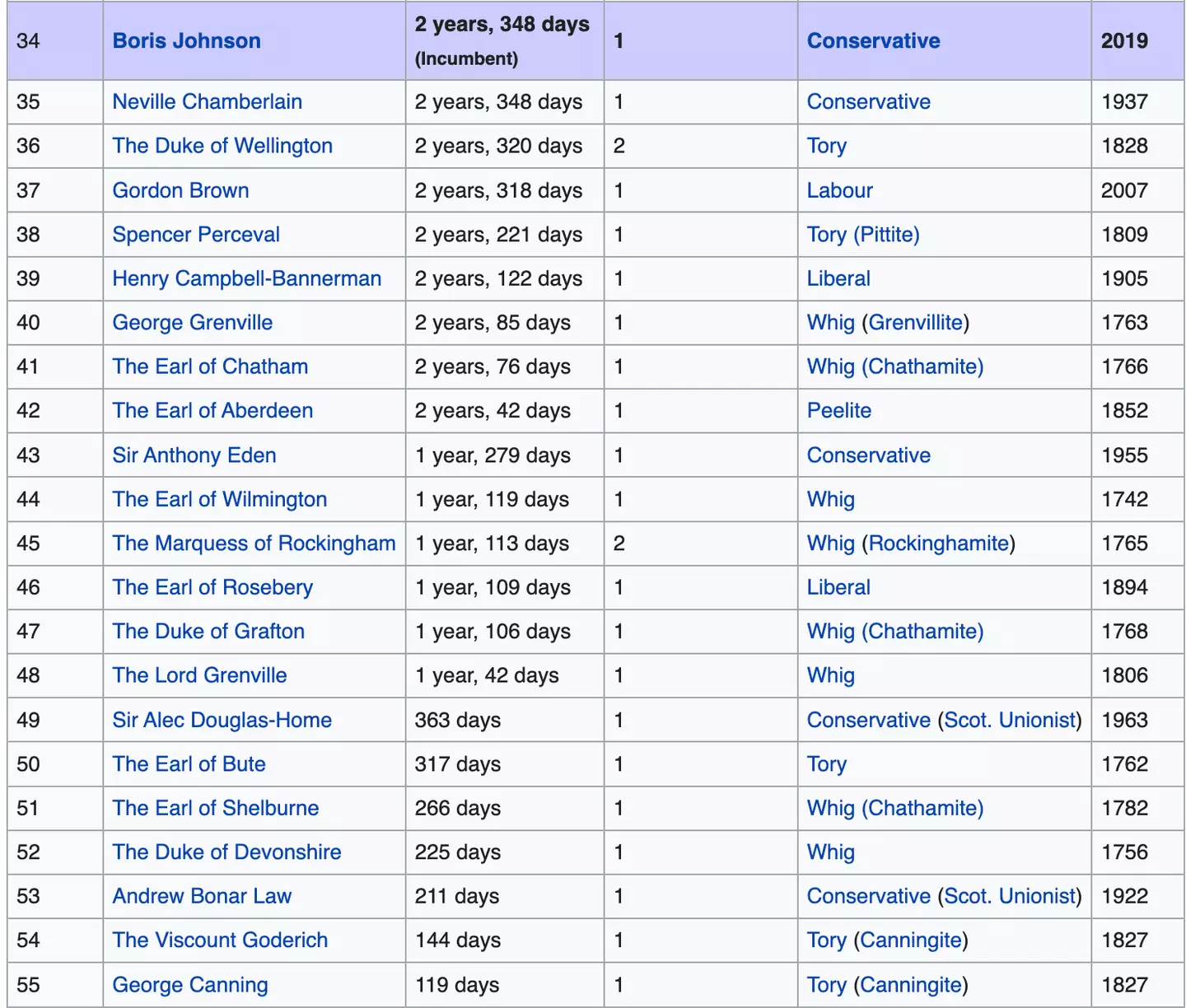
Boris Johnson has officially made the list as one of the shortest serving Prime Ministers in the modern history of the UK.
Johnson first took over as British Prime Minister in 2019. However, it hasn't taken him long for him to zipwire his way to a fairly catastrophic end.
News first arose of the Conservative leader's resignation today (7 July), just two days after Chancellor of the Exchequer Rishi Sunak and Secretary of State for Health and Social Care Sajid Javid also resigned.

Advert
Johnson is reported as having spoken to Tory 1922 Committee chairman Sir Graham Brady and having agreed to stand down by a source from within Number 10.
He will subsequently have lasted a total of two years and 348 days as British Prime Minister, coming in at position 34 in the 'List of Prime Ministers of the United Kingdom by length of tenure'.
While, at first glance, a ranking of 34 out of 55 may not appear quite so tragic, when weighed up against the Prime Ministers who have taken over the government in more modern history, Johnson's stats are pretty sombre.

Johnson follows after none other than his predecessor Theresa May, who managed three years and 11 days as Prime Minister, beginning her reign in 2016.
Falling just behind Johnson in 35th place is Neville Chamberlain, who managed two years and 348 days and The Duke of Wellington who stood his ground for two years and 320.
The only leader who's preventing Johnson from being the shortest serving Prime Minister in modern history is Labour leader Gordon Brown.
Brown lasted two years and 318 days, first stepping up to the role in 2007.

Johnson is expected to give a statement on his resignation later today.
A Tory party conference is set to be held in October, with a new leader of the party expected to be appointed by the time it's held.
The new leader will be voted for by Conservative MPs and party members.
Under current rules, the next general election is set to be held no later than 23 January 2025, however, it could be brought forward if the new leader doesn't gain the trust and confidence of the House of Commons.
Johnson's departure follows his appointment of Chris Pincher as deputy chief whip, despite being briefed on allegations of inappropriate behaviour having been made against the Conservative MP in 2019.
Pincher quit last week after he was accused of having groped two men at a club in London.
Johnson initially said he did not know about the 'specific' allegations brought against Pincher recently and 'did not immediately recall' having being briefed about the investigation into Pincher's behaviour in 2019.
If you have a story you want to tell, send it to UNILAD via [email protected]
Topics: Boris Johnson, Politics, UK News